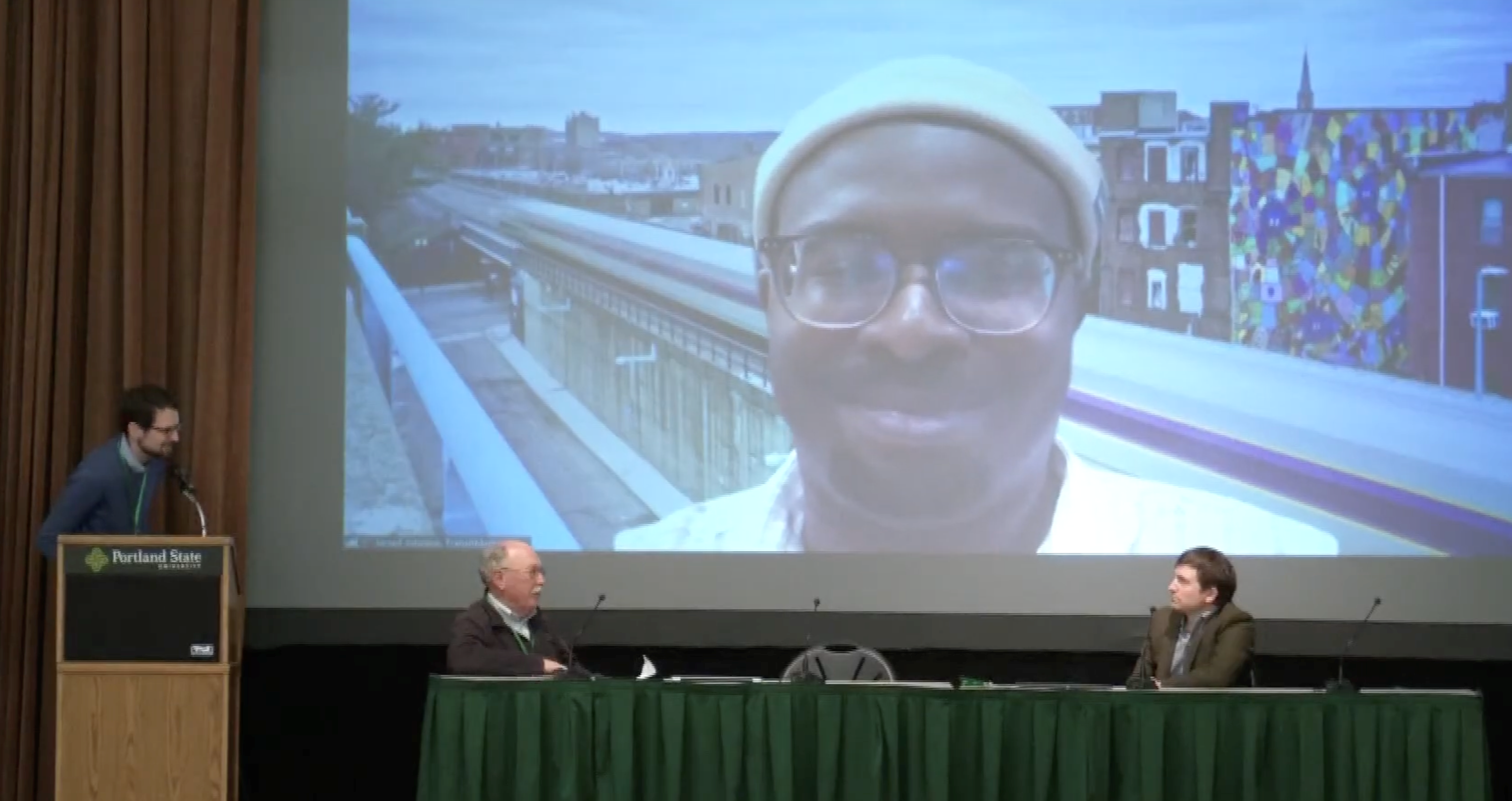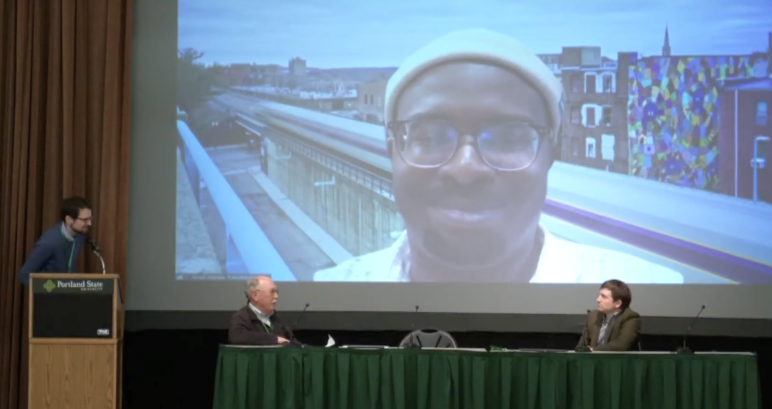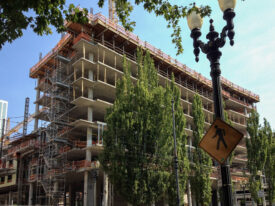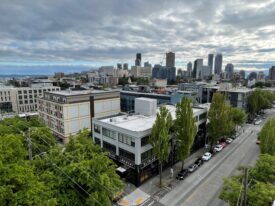The conversation shared below was part of the YIMBYtown 2022 conference, cohosted by Sightline Institute and Portland: Neighbors Welcome.*
Research says that to build low-carbon neighborhoods, we need to plan for regions filled with dense, walkable communities composed of abundant and affordable housing connected by frequent and reliable transit. But how do we get there? And what role can abundant housing advocates play in coordinating with transit and climate advocates to spur these changes?
This panel presented the latest research on the significance of smart land use policy and advice on how to make the housing–transportation link more durable.
- Joe Cortright, director of City Observatory, discusses how transportation, housing, and land use are different sides of same coin, and how the automobile age and car dominance have negatively affected the urbanism we would like to have.
- Ben Holland, manager on RMI’s Urban Transformation team, shares RMI’s findings that the United States cannot meet its 1.5° ambitions if we don’t change our driving habits or where we build housing, and how we need to embrace non-electrification transportation solutions such as urban infill development to address climate change.
- Jarred Johnson, executive director of TransitMatters, talks about legislation passed in Massachusetts that enables multifamily housing to be built along transit lines, and how transit and getting people out of cars—not just into slightly greener cars—must be part of any major climate change policy.
- Ben Crowther, program manager with the Congress for the New Urbanism (CNU)’s Highways to Boulevards initiative, moderates the session and the Q&A. Questions included:
- How do we bring in environmental and climate groups and get them on board in the transit and housing realm so that our efforts are better coordinated?
- How do we apply the data presented to the suburban realm?
Related:
- Habitat for Humanity Goes All In for Multifamily Housing
- The Vast Potential of Pairing Transit and Homes in Washington State
- New Washington Bill Would Legalize More Homes and Businesses by Transit
*YIMBYtown 2022 occurred April 11–13 in Portland, Oregon, the fourth annual gathering (after some COVID delays) of “Yes in My Back Yard” (YIMBY) community leaders, organizers, planners, policymakers, educators, and housing providers eager to share resources and strategies for building more affordable, sustainable, and equitable communities.









